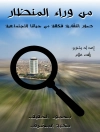This volume looks at the interactions of collaborating teachers in multilingual classrooms and how these impact on what counts as knowledge in the secondary school classroom. It also looks at how policy statements and ideologies around multilingualism position teachers and learners in particular ways. A linguistic ethnographic approach is taken in the study, which considers the discourses of whole class and small group teaching and learning. Chapters consider the relation between different languages, different pedagogues and different teacher identities in the secondary school classroom. The book documents how a policy of inclusion is played out in practice.
Зміст
Acknowledgements
A Note on Terminology
List of Abbreviations
Introduction
1. Theoretical and Methodological Frameworks
2. Policy into Practice
3. Teachers in Multilingual Mainstream Classrooms: Enacting Inclusion
4. Teachers Talking: The Discourses of Collaborating Teachers
5. The Discursive Positionings of Teachers in Collaboration
6. Teacher Collaboration in Support and Withdrawal Modes
7. Teaching Partnerships
8. Content-based Language-learning and Language-based Content-learning: Learning a Second Language in the Mainstream Classroom
9. Bilingual Teachers and Students in Secondary School Classrooms: Using Turkish for Curriculum-learning
10. Mediating Allegations of Racism: Bilingual EAL Teachers in Action
11. Conclusions
Bibliography
Index
Про автора
Angela Creese is Professor of Linguistic Ethnography at the University of Stirling, UK. She has published widely on multilingualism and ethnographic methods.












